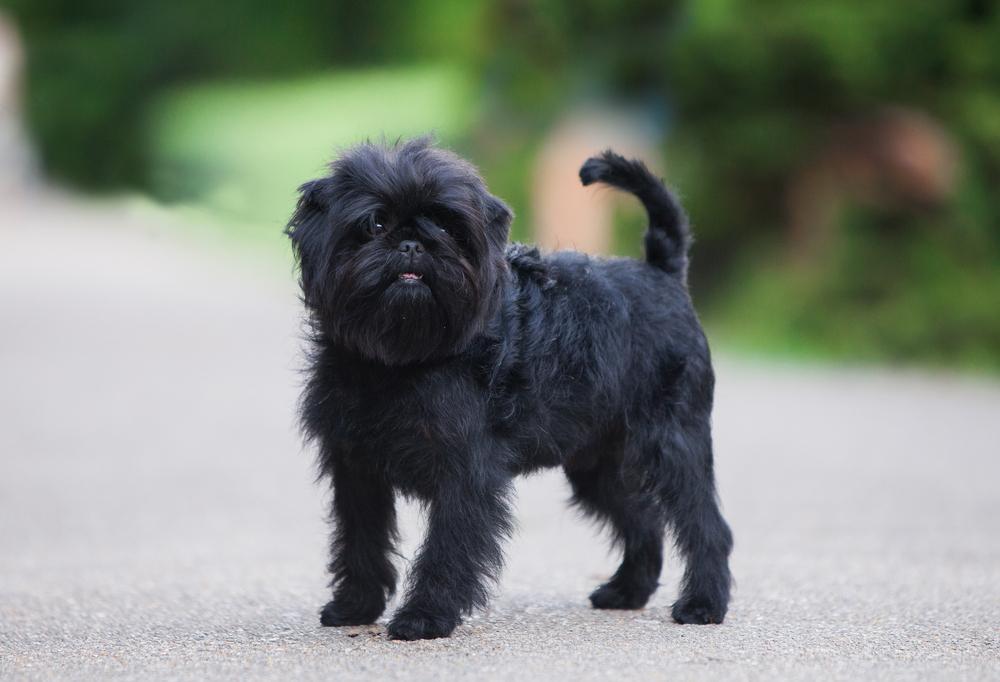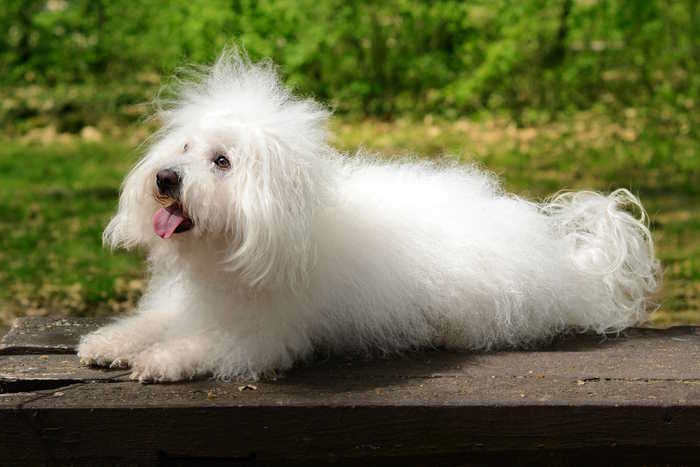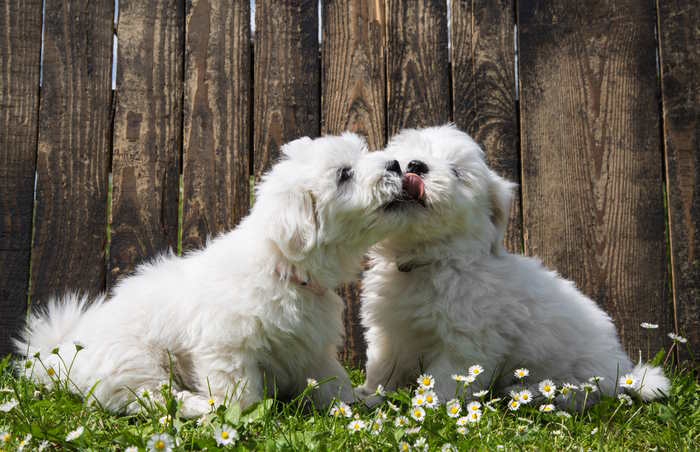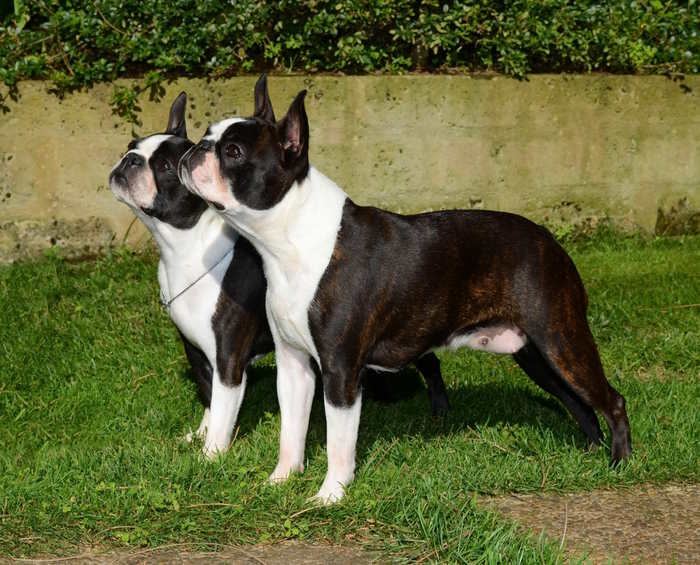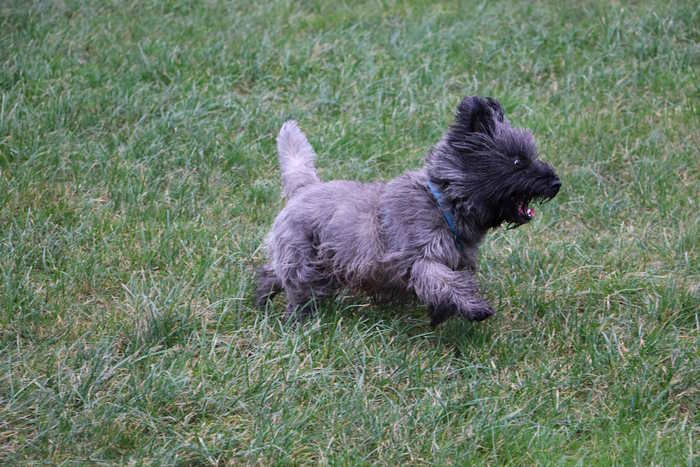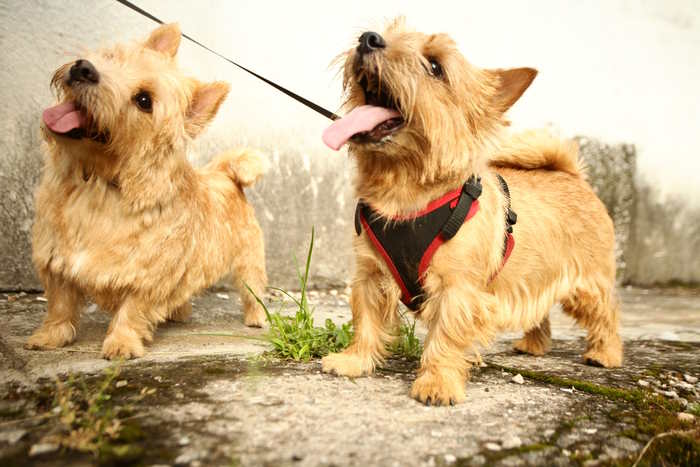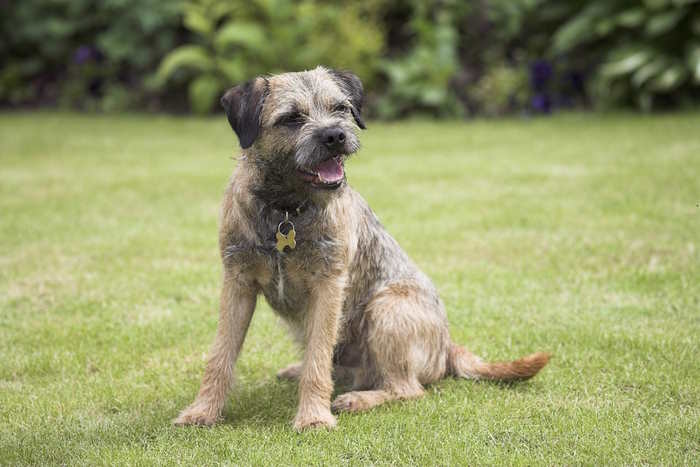- Small Dog Place Home
- Health
- Which Small Dog Breeds are the Healthiest?
Which Small Dog Breeds Are the Healthiest?: Does Cuteness Matter?
Which Saml Dog Breeds are the Healthiest?
by Janice Jones
Last Updated 04-07-2024
Pet owners are naturally drawn to a favorite breed. Some choose a dog breed because of their small size and believe they're easier to look after.
Here's what you need to know about the healthiest small dog breed. Any dog breed can have health conditions, and genetic diseases can impact the life expectancy of small dog breeds.
Let's find out which small breeds are the healthiest.
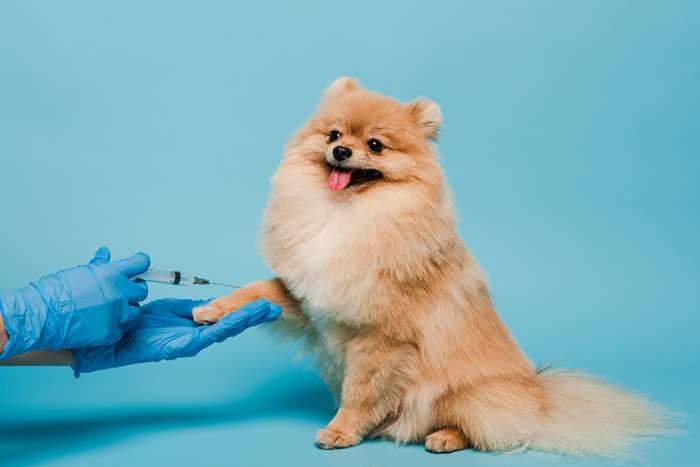 Which small dog breeds are the healthiest?
Which small dog breeds are the healthiest?How to Keep Your Dog Healthy
Small dogs, toy breeds, and designer dogs are becoming more popular. These miniature canines can cost a small fortune. The healthiest small dog breeds often come from a responsible breeder, so don't buy puppy mill dogs from a pet store.
Here are the basics of keeping any dog healthy.
Provide Quality Food
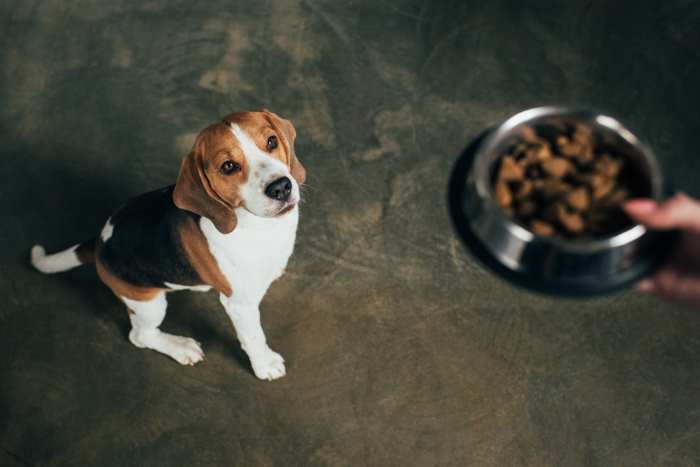
Dogs at all stages, from puppy to adult and senior, have unique nutritional needs. Luckily, the pet food market has exploded with healthy, nutritious options to keep your small dog healthy.
Feeding Puppies
Puppies from age 8 to 12 weeks need about four meals daily, but always check the nutritional chart on the dog food and ask your vet. The best food helps a puppy grow at a natural rate.
From 3 to 6 months, these juniors get about three meals daily. Once they reach 6 months, change the feeding routine to twice daily.
Read more about Feeding Puppies
Tip:
Keeping puppies on a scheduled feeding routine promotes healthy regular bowel movements.
Feeding Adult Dogs
As your small breed dog matures, it's okay to stick with a twice-daily feeding or reduce it to once. Some experts suggest that splitting the meals is healthier.
Feeding the Senior Dog
Senior dogs have their unique food requirements. As they age, dogs might develop dental issues, making eating difficult.
Dog food options
The dog food industry has developed quality kibble, wet, raw, and excellent designer food choices. These gourmet foods often blend fruits, vegetables, broth, and grains and are balanced with quality meats.
Read more about Feeding Dogs
Tip:
Limit treats to training.
Regular Vet Visits
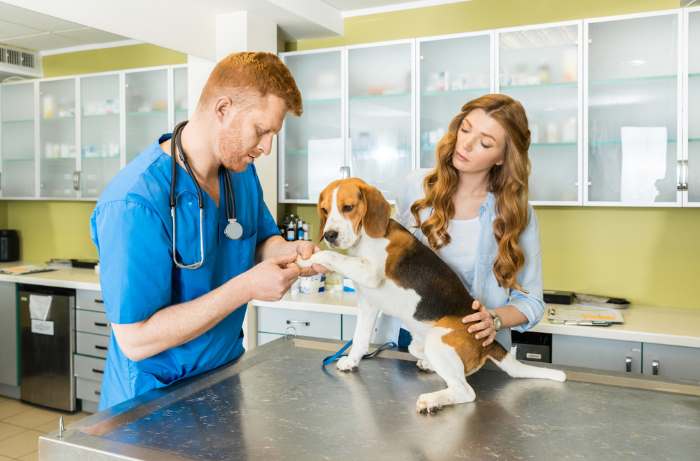 Which small dog breeds are the healthiest?
Which small dog breeds are the healthiest?When you bring a puppy or rescue dog home, do the legwork and find a good vet. A veterinarian is an excellent partner for keeping your dog healthy at any age, and regular vaccinations and health exams are vital.
Preventing Diseases From Ticks and Parasites
Fleas and ticks can be dangerous depending on where you live. Also, talk to your vet about heartworm medications from mosquito bites.
Ticks are opportunistic and wait for any warm-blooded passerby and hop on for a free meal; luckily, there are preventative medications. Routine inspections between the toes, the nape, ears, and even along the gum line are vital to prevent dangerous diseases like Rocky Mountain Spotted Fever.
Tick Diseases
- Lyme Disease
- Rocky Mountain Spotted Fever
- Canine Bartonellosis
- Canine Ehrlichiosis, Anaplasmosis, Babesiosis, Hepatozoonosis
Flea Diseases
If you notice your dog scratching, it's time to check for fleas. Puppies are vulnerable to flea infestation.
- Flea allergy dermatitis
- Tapeworms
- Anemia
- Bartonellosis
Regular Grooming
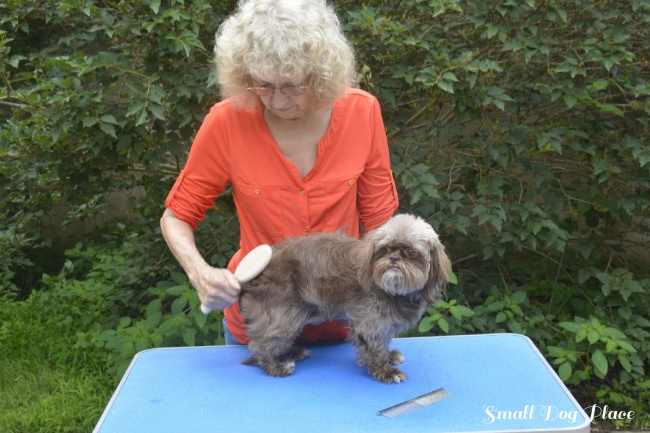
Not all small dog breeds need a professional groomer; you can master many grooming chores.
Basic Grooming
- Use a mild detergent to shampoo your dog (overuse of chemicals can harm their delicate skin). Always rinse thoroughly.
- Brushing keeps the coat of our fur baby shiny and healthy. It's also a good habit to spend time with our dog.
- Nails are more challenging, but keeping nails trimmed is essential. You can learn how to clip or file them or have a professional help you.
Tip:
When you bring a puppy home, touch their toes frequently to prep them for the nail clipper, and gently rub their ears as you will likely be cleaning them for buildup and mites.
Daily Activities and Exercise

Big and small dogs have needs to match their size. Small dogs still require exercise to stay healthy and to provide mental stimulation. Some small dog breeds, like the Australian Cattle Dog or Shiba Inu, benefit from routine activity and mental challenges.
Many smaller breeds in the terrier group, like the Miniature Schnauzers, Norfolk Terrier, Lakeland Terrier, and Border Collies, also have a long work or hunting history in their pedigree.
Bored dogs tend to get into destructive behavior like chewing, barking, and aggression. The World Animal Foundation suggests adding an invisible fence to your dog's safety measures can be a valuable solution for ensuring their security during daily activities and exercises.
Whatever the weather, you can still keep a dog happy activities indoors.
Which Small Dog Breeds are the Healthiest?
The French Bulldog is undoubtedly one of the most popular breeds, but many health issues also plague them. Here are some of the best, healthiest dog breeds in the tiny dog category.
Here are the top 10 breeds that are very healthy.
Chihuahua
Talk about attitude. Chihuahuas are popular for many reasons, and remain one of the healthiest, provided they receive a nutritious diet, daily exercise, and stress-free home.
They don't like sharing attention with small children.
Despite being one of the healthiest, ensure your Chihuahua comes from a responsible breeder.
If you rescue a Chihuahua with an unclear genetic pool, you should know they can have problems with their heart, eyes, and epilepsy. They can happily live up to 18 years.
Affenpinscher
Also called the Monkey Do Dog, this comic puts a smile on faces. It's an acrobatic performer, sensitive to people's needs, intelligent and healthy breed.
Affenpinschers are sturdy and protective and tolerate children and other dogs well if socialized. This cute dog is from the toy terrier family and with a 12 to 15-year life expectancy.
Although very fit, Affenpinschers can have heart issues, vision health problems, hip dysplasia, and breathing difficulties in hot weather.
Bolognese
These sweet snowballs are part of the Bichon Frise family and are low-energy but super smart. They have Italian heritage and form a solid attachment to their hooman family. They get along with other dogs and children but may not take to strangers.
They make ideal companion dogs but don't do well alone and suffer from separation anxiety. These stocky pups can have trick knees and eye problems. With proper care and attention, Bolos can live a long and happy life.
Australian Terrier
Australian Terriers are an energetic dog breed. They're excellent for families with children. They're one of the most responsive breeds and part of the working class.
Aussies like to be on the move, chase, and dig, so exercise and stimulation are critical to keeping a healthy life for 11 to 15 years.
These healthy terriers have few health issues permitting responsible breeders to be vigilant about genetic testing. Luxating patella (trick knee) and Legg-Calve-Perthes is a hip joint diseases. Grooming is essential, and they need help with tooth brushing.
Coton de Tulear
This healthy breed is easily mistaken for a stuffed toy. Coton de Tulear is very affectionate and adores children and other pets. They're fun and boisterous but not obnoxious.
They benefit from a healthy diet and grooming and live up to 15 years. They're perfect for city living and have few health issues.
Cotons may have problems with Progressive Retinal Atrophy, hip dysplasia, and knees.
Boston Terrier
Bostons have long been a favorite in their tuxedo coat. They're very people-oriented and behave well in busy cities and coffee shops. Because of their size, they're also portable.
They have a grounded temperament. Bostons like to stay busy and entertain their family.
Although a fit and active breed, their prominent eyes irritate easily and need saline drops to flush irritants. They can also suffer from corneal ulcers, cataracts, glaucoma, breathing issues in extreme heat, and trick knee and deafness.
Cairn Terrier
Cairns are feisty hunting dogs. They're inquisitive and like to explore, dig, and get along moderately well. Their unique wiry coat requires routine brushing.
Super loyal and intelligent, Cairns benefits from an active lifestyle and affection.
Generally healthy, your vet will check your Cairn for liver, kidney, heart, and eyes.
Norwich Terrier
Norwich terriers are the classic terrier and have a big dog attitude despite being in the toy-sized group; they're expert ratters.
These cuties can be bossy and enjoy a good ball game even if it takes all day. They're clever and relentless and need training.
Healthy and robust, they can develop plaque and tartar. Hip dysplasia, epilepsy, and degenerative myelopathy might appear in their DNA. Watch for upper airway syndrome.
Schnoodle
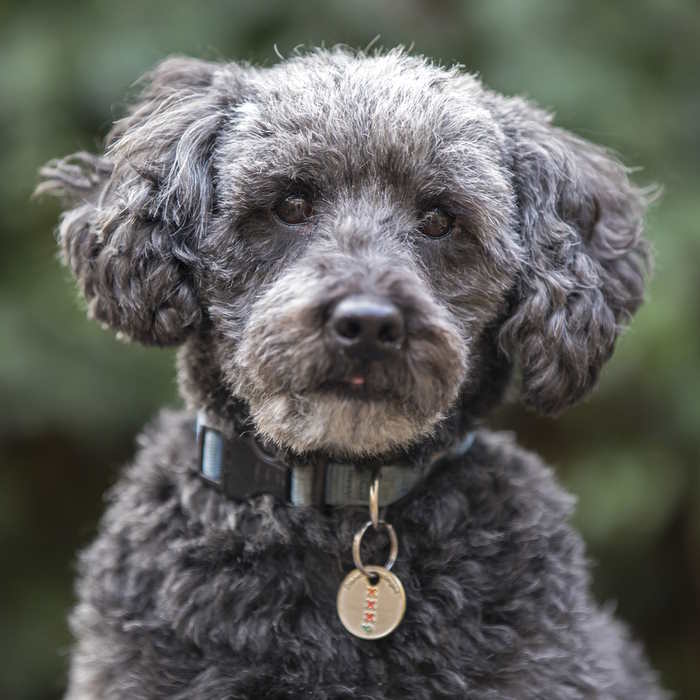
Schnoodles are as cute as their name. A Schnoodle is part Schnauzer and Poodle. This combo makes them intelligent and produces a hypoallergenic coat.
Schnoodles are active and playful and want to please you. They get on great with kids and other pets.
They might carry genetic health conditions from their parent breeds.
One common problem is hair inside the ear leading to infections. Also, look for Progessive Retinal Atrophy, cataracts, Addison's Disease, bloat, epilepsy, and joint issues.
Border Terrier
These wire-haired cuties are popular. They're even-keeled, loving companions. As with all terriers, they enjoy a good romp outside and like to explore.
They also retain their hunting instinct and don't mind digging in the garden.
These scruffy terriers require minimum grooming and take well to training.
Ask your vet to look for hip dysplasia, Progressive Retinal Atrophy, juvenile cataracts, seizures, heart issues, and some allergies.
Which Small Dogs are the Healthiest?
Conclusion
The healthiest small dog breeds make wonderful additions to your family. All dogs require general dog care to prevent a few health conditions.
Which Small Dog Breeds are the Healthiest?
Pin for Future Reference
More About Janice (author and voice behind this site)
Janice Jones has lived with dogs and cats for most of her life and worked as a veterinary technician for over a decade.
She has also been a small-breed dog breeder and rescue advocate and holds academic degrees in psychology, biology, nursing, and mental health counseling.
Her work focuses on helping dog owners make informed, responsible decisions rooted in experience, education, and compassion.
When not writing, reading, or researching dog-related topics, she likes to spend time with her six Shih Tzu dogs, her husband, and her family, as well as knitting and crocheting.
She is also the voice behind Miracle Shih Tzu and Smart-Knit-Crocheting

Free Monthly Newsletter
Sign Up for Our Free Newsletter and get our Free Gift to You.
my E-book, The Top 10 Mistakes People Make When Choosing a Dog (and how to avoid them)

